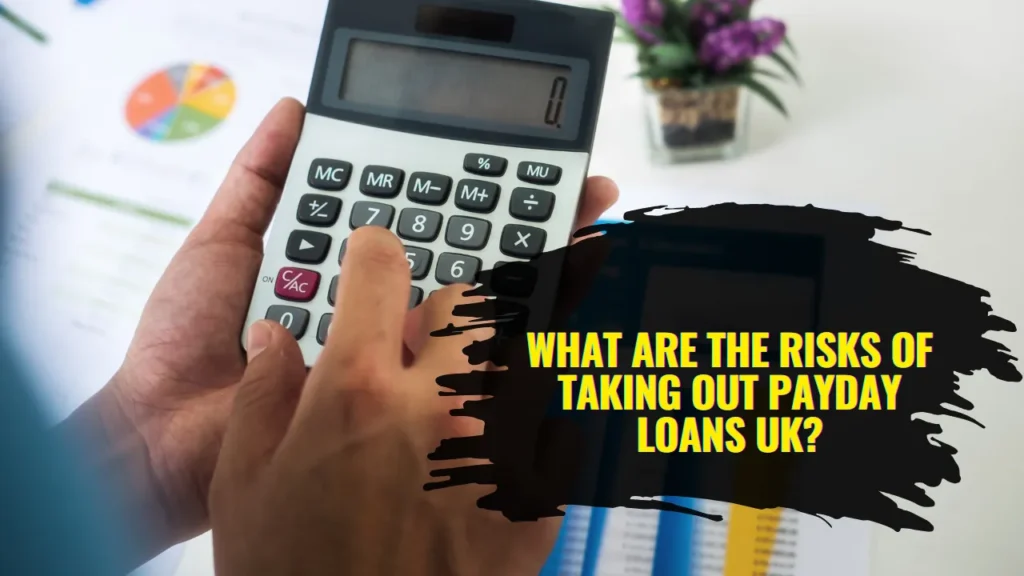Payday loans have become a common option for people facing urgent financial difficulties. They are marketed as quick and convenient solutions for covering unexpected expenses until your next payday. With just a few clicks online, many lenders promise instant approval and same-day cash transfers.
On the surface, it sounds like a lifeline. But anyone considering payday loans should pause to ask: what are the risks? Are these loans genuinely helpful, or do they create more financial harm than good? Having worked with borrowers and studied financial products for years, I’ve seen both sides—people who used payday loans responsibly in emergencies and those who ended up in a cycle of debt that felt impossible to escape.
Why People Turn to Payday Loans
In the UK, many households live paycheck to paycheck, and even a small financial hiccup can cause big problems. A sudden car repair, a medical bill, or even a delayed wage payment can push someone to seek fast cash. Payday loans cater to that exact need: speed and accessibility.
Traditional bank loans usually involve lengthy applications and credit checks, making them impractical for urgent situations. Payday lenders fill that gap, offering short-term loans—often a few hundred pounds—that must be repaid in full with interest by the borrower’s next payday.
While this model provides immediate relief, it also sets the stage for serious risks if not managed carefully. In many cases, platforms offering payday loans uk promote speed and convenience over financial education, leaving borrowers unaware of the potential pitfalls.
The True Cost of Payday Borrowing
One of the biggest risks of payday loans lies in their cost. Interest rates are significantly higher than those of personal loans or credit cards. Even though the loan term is short, the annual percentage rate (APR) can be astronomical, sometimes reaching hundreds or even thousands of percent.
This means borrowing £200 for a few weeks could cost £40–£60 in fees and interest alone. If repayment is delayed or rolled over, the costs multiply quickly. What started as a small loan can spiral into a much larger debt within weeks.
I’ve seen borrowers who initially needed £100 for groceries but, after extensions and fees, ended up owing more than £500. This pattern is not uncommon and reflects how payday loans can trap borrowers in debt cycles.
Risk of Falling Into a Debt Spiral
The short repayment window is another major challenge. Unlike installment loans, which spread payments over months, payday loans often require full repayment in one lump sum on your next payday. For many, this creates a new problem: once the loan is repaid, there’s little left from their salary to cover the rest of the month’s expenses.
As a result, borrowers may feel forced to take out another payday loan to bridge the next gap, creating a cycle of borrowing and repayment that can last for months or even years. This cycle damages not only financial stability but also mental health, leading to stress, anxiety, and strained relationships.
Impact on Credit Scores
While payday loans can sometimes be approved without a full credit check, repayment history is often reported to credit agencies. Late or missed payments will hurt your credit score, making it harder to access more affordable borrowing options in the future.
Ironically, people turn to payday loans because they can’t access traditional credit, but reliance on these loans can further damage their financial profile, locking them out of safer alternatives.
Aggressive Collection Practices
When borrowers fail to repay payday loans on time, lenders can be aggressive in their collection tactics. This may include frequent phone calls, escalating interest, or even legal action. Although regulations in the UK have tightened in recent years to curb predatory practices, some borrowers still report high-pressure tactics that intensify their financial distress.
I once spoke with a borrower who described the stress of daily phone calls and emails from a lender after missing just one repayment. Instead of helping resolve the issue, the lender’s approach worsened her situation.
Alternatives to Payday Loans
For anyone considering a payday loan, it’s worth exploring alternatives first. Credit unions, for example, often provide small loans with far lower interest rates and more flexible repayment terms. Some employers offer salary advances or hardship funds, while government support schemes may also be available.
Even talking openly with creditors can sometimes lead to payment plans that ease short-term pressure without resorting to payday borrowing. While these options may take more effort than a quick online application, they can save borrowers from the long-term consequences of high-cost loans.
Final Thoughts
Payday loans may seem like a quick fix, but they carry risks that can far outweigh their benefits. From sky-high interest rates to the possibility of falling into a debt spiral, these loans often leave borrowers worse off than when they started.
In my view, payday loans should only ever be a last resort, used with full awareness of the costs and risks involved. If you find yourself in a financial emergency, explore every possible alternative before committing to one. And if you must take out a payday loan, have a realistic repayment plan in place to avoid rolling the debt forward.
The real solution lies not in short-term fixes but in building long-term financial resilience—budgeting better, creating emergency savings, and seeking affordable credit when needed. Payday loans may promise speed and convenience, but for many borrowers, the hidden price is simply too high.











